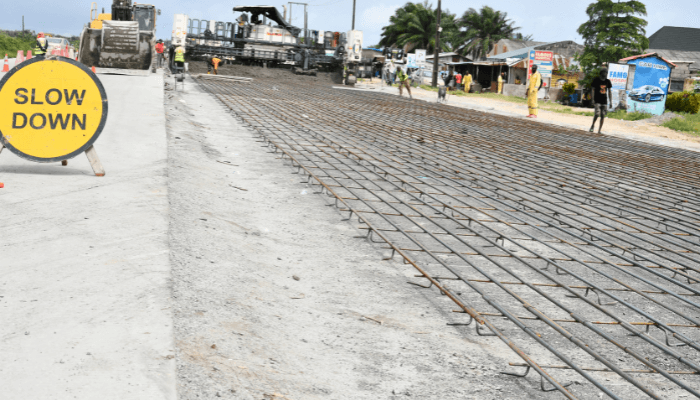Respite for motorists on Lekki-Epe corridor as Lagos moves to tackle gridlock
Respite is on the way for motorists on Lekki-Epe Expressway as the Lagos State government has directed the Nigeria Union of Petroleum and Natural Gas Workers (NUPENG) to comply with the e-call-up guidelines for trucks operating along that corridor.
The state government’s directive was announced by Oluwaseun Osiyemi, the state’s Commissioner for Transportation, who said that failure to comply would trigger enforcement measures.
This directive has become necessary as the ghost of Apapa gridlock is already hovering over the Lekki-Epe corridor with trucks parking indiscriminately on the road, causing congestion and gridlock that keep other road users at a spot for hours. These trucks are owned or controlled by NUPENG members.
In a bid to control the activities of these truck drivers and bring sanity to that corridor, the state governor introduced the electronic call-up system, which was what brought the notorious Apapa gridlock to an end after 12 years of inflicting pain on motorists, degrading the environment, and reducing property value in the port city to abysmal levels.
The government had earlier summoned NUPENG officials over non-compliance with the online booking system, which has led to trucks collecting cash on the roads and parking indiscriminately.
The disorganized operations, Osiyemi noted, have caused traffic congestion along the Lekki-Epe corridor and disrupted the efficiency of the transport system. He added that trucks are required to undergo validation and clearance before entering designated parks, a process that NUPENG members have largely ignored.
“The e-call-up system was introduced to regulate truck movements and ease congestion along the Lekki-Epe corridor, particularly around the Lekki Free Trade Zone,” the commissioner explained, adding, “The digital platform was designed to coordinate truck entry and exit, preventing gridlock caused by indiscriminate parking and unregulated movements along the busy route.
Originally scheduled to launch on August 1, 2024, the system was postponed and officially rolled out on September 23, 2024. That was temporarily suspended in March 2025 but later resumed operations.
BusinessDay gathered that in spite of the call-up system, commuters are still at the mercy of the trucks and collapsed portions of the expressway, which have increased travel time and cost, especially when it rains.
“Since I’ve been working along this road, I’ve never spent this amount of time in traffic; yesterday, I spent five hours between Ajah and Lekki,” a Korope driver told BusinessDay, noting that the traffic, which has been bad since the rainy season, is a result of the many potholes that dot the expressway.
Due to the gridlock, transport fare along the axis has surged such that from Ajah to Jakande now costs N1000 and further down to Lekki costs N1500, up from N800 and N1000 respectively.
Similarly, travel time has increased significantly. “I left Lakowe this morning by 7:50 am and I got to Ikate 11:32 am,” a commuter lamented in his X (formerly Twitter), stressing that the same journey couldn’t have taken him more than an hour and a half on a good day.
“The government needs to do something about the road and traffic in places like Jakande/Osapa,” Dotun Kayode, a Radio host who lives in that axis, said on his X, noting, “there is something wrong with Jakande bus stop all the way to Ajah; something very wrong; this traffic is from hell.”

